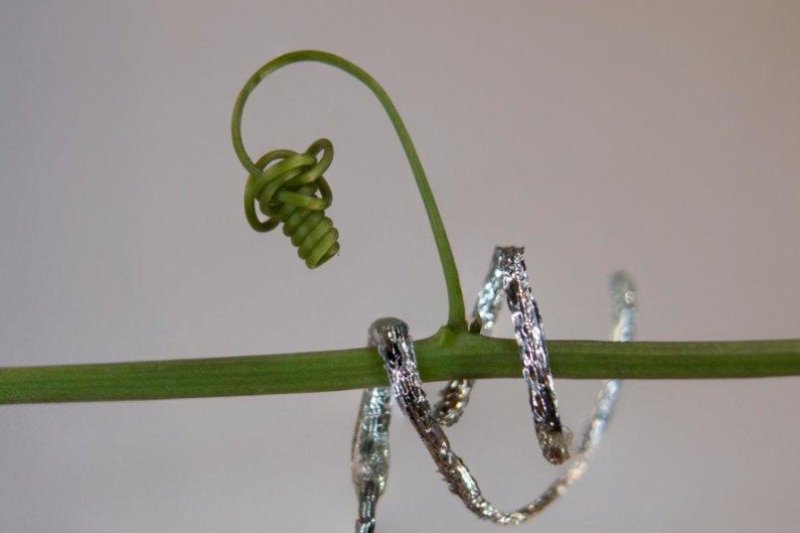The new tendril-like soft robot is pictured curling itself around the stalk of a passionflower. Photo by IIT-Istituto Italiano di Tecnologia
Jan. 24 (UPI) -- Engineers in Italy have designed the world's first tendril-like soft robot.
Like vines and other climbing plants, the slender, soft-bodied robot wraps itself around objects to pull itself higher and higher. The similarities are both external and internal. To hoist itself upward, the new robot relies on the same physical principles that govern water transport in plants.
Water's movement through plant tissue is governed by the hydraulic principle of osmosis, which relies on the distribution of small particles throughout the cytosol, the liquid inside plant cells. Osmosis describes the movement of soluble particles from areas of lower to higher concentration across a semipermeable membrane.
Mathematical models helped researchers at the Italian Institute of Technology replicate the natural system while speeding up the movement mechanism.
Scientists built the robot out of a flexible PET tube. Inside the slender noodle-like body, researchers injected a solution containing electrically charged particles. Battery-powered flexible electrodes installed at the bottom of the tendril attract and trap the ions.
The movement of the charged particles causes the tendril-like robot to stiffen and relax, creating movement. And like climbing plants, the robot's movements can be easily reversed -- in this instance, by turning off the battery.
Researchers described their feat this week in the journal Nature Communications.
Authors of the new study think their novel robot technology could be used for a variety of practical purposes, including the creation of new types of wearable devices.
"Our approach highlights the potential of plant-inspired technologies for developing soft robots based on biocompatible materials and safe voltages making them appealing for prospective applications," researchers wrote.















